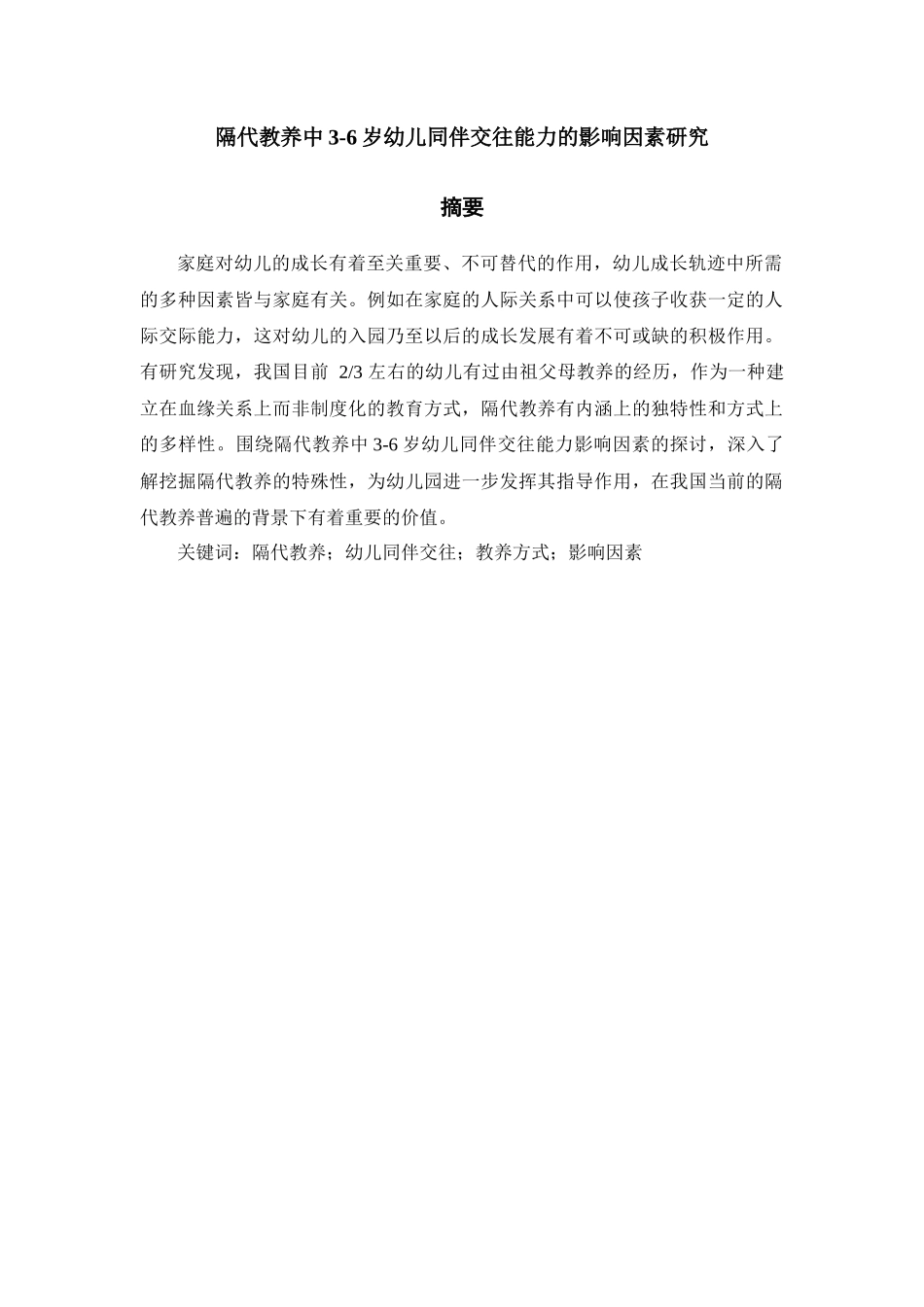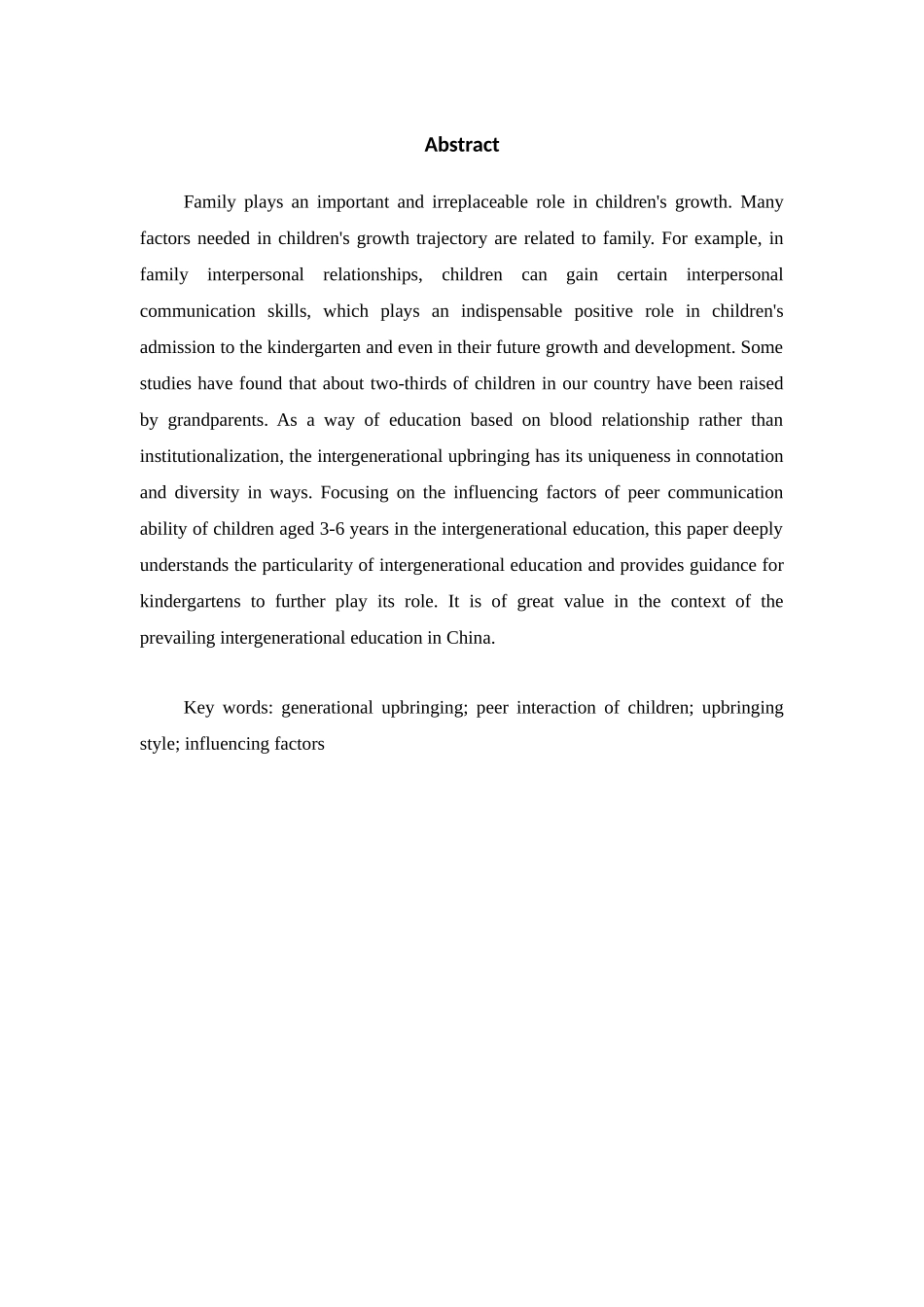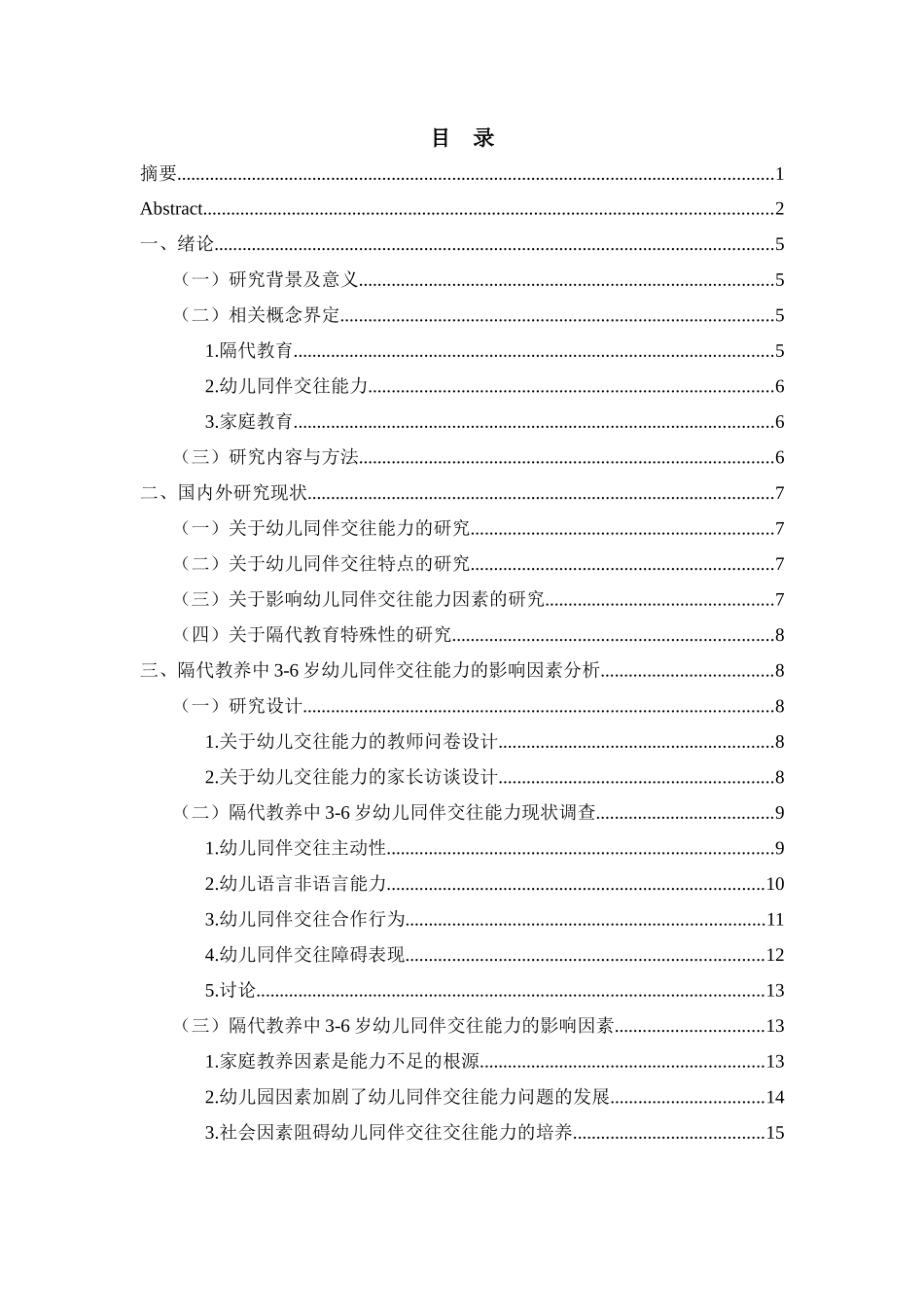隔代教养中 3-6 岁幼儿同伴交往能力的影响因素研究摘要家庭对幼儿的成长有着至关重要、不可替代的作用,幼儿成长轨迹中所需的多种因素皆与家庭有关。例如在家庭的人际关系中可以使孩子收获一定的人际交际能力,这对幼儿的入园乃至以后的成长发展有着不可或缺的积极作用。有研究发现,我国目前 2/3 左右的幼儿有过由祖父母教养的经历,作为一种建立在血缘关系上而非制度化的教育方式,隔代教养有内涵上的独特性和方式上的多样性。围绕隔代教养中 3-6 岁幼儿同伴交往能力影响因素的探讨,深入了解挖掘隔代教养的特殊性,为幼儿园进一步发挥其指导作用,在我国当前的隔代教养普遍的背景下有着重要的价值。关键词:隔代教养;幼儿同伴交往;教养方式;影响因素AbstractFamily plays an important and irreplaceable role in children's growth. Many factors needed in children's growth trajectory are related to family. For example, in family interpersonal relationships, children can gain certain interpersonal communication skills, which plays an indispensable positive role in children's admission to the kindergarten and even in their future growth and development. Some studies have found that about two-thirds of children in our country have been raised by grandparents. As a way of education based on blood relationship rather than institutionalization, the intergenerational upbringing has its uniqueness in connotation and diversity in ways. Focusing on the influencing factors of peer communication ability of children aged 3-6 years in the intergenerational education, this paper deeply understands the particularity of intergenerational education and provides guidance for kindergartens to further play its role. It is of great value in the context of the prevailing intergenerational education in China.Key words: generational upbringing; peer interaction of children; upbringing style; influencing factors目 录摘要.................................................................


